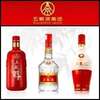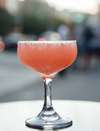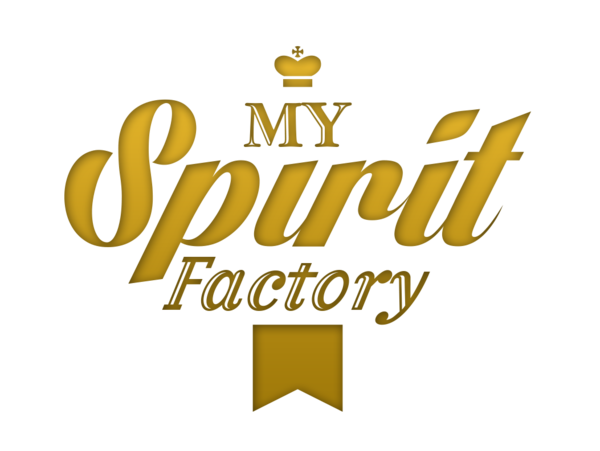When the Baijiu will awaken: what an opportunity for France and the Spirits Valley?
Why is the Baijiu still moping on our bar shelves?
Over the last ten years or so, attempts to market baijiu internationally have generally failed. With the exception of the possibility for Chinese nationals to acquire bottles at the largest airports, Western consumers continue to ignore this spirit with such an atypical taste.
The specialist bars that had flourished in the mid-2010's have long since closed their doors and the revival of gin has definitively condemned baijiu in the cocktail race. Since then, the bottles have inevitably been collecting dust on the shelves of Western bars.
Even the Chinese market is seeing new generations of consumers turning to beers or wines with an alcohol content three times lower and more affordable prices as a bottle of baijiu costs on average 180€.
It is not for lack of trying with the work done on cocktails and food pairing as well as on the packaging, which still remains too traditional in some aspects.
It's hard to see how the situation could be reversed, especially given the economic war between China and the USA, not to mention the health situation which is putting a freeze on the creation of events in the medium term... But in the longer term, there's a chance. If only because baijiu is worth around $4 billion and the Chinese consume as much as whisky, vodka, gin and rum worldwide!
Improving its performance by a few points in these conditions is not negligible...



A tedious international development
International baijiu can be summed up in a few key dates such as its international recognition at the Universal Exhibition in Panama in 1915 and the bottle offered to Nixon during the warming of diplomatic relations between China and the USA in 1975. The Americans summed up the product as 'liquid razor tears', which is not very flattering.
We have to wait until 2013 to see 'Bye Joe', the first baijiu produced in the USA by Matt Tusch, followed by HKB (Hong Kong Baïjiu) in 2015, which will make a real breakthrough in the world of mixology with its limited editions.
The year 2015 also marks the opening of the first bars dedicated to the beverage in New York: the Taste of China and especially the Lumos. The latter in particular has really opened up the world of cocktail and food pairing with its infusions and tapas plates.



How can baijiu reinvent itself?
Seen from China, the temptation to see spirits gaining ground as soft power abroad is motivating traditional companies to innovate, particularly by creating ranges with milder flavours and more elaborate packaging. The notable presence of baijiu producers at Vinexpo in 2019 is there to attest to this, with a clear desire to convert European consumers. The Beijing-based blogger Jim Boyce has even created a World Baijiu Day on 9 August.
Similarly, the Maotai brand's foray into the top 100 of the most famous international luxury companies is an event.
Alongside the leaders Maotai and Wuliangye, other brands are part of an export policy. In this respect, the traditional company Luzhou Laojiao has specifically created Ming River with the English agency United Creative.

Abroad, an English farmer launches the new Thompson brand in London on January 25, 2020, Chinese New Year's Day. This farmer produces himself the sorghum which is the raw material of this bottle sold 45£ for 50cl and titrating 50°.

For Thompson, baijiu is the Chinese equivalent of mezcal with its smoky and umami notes.
But unlike Mexico, which has organized and protected the manufacture of tequila and mezcal on its territory, it is still possible to create a baijiu abroad.
So why not a baijiu made in France since the Chinese love France?
A French know-how able to boost the expansion of baijiu in the world.
I see two possible ways of adapting the product to make it more attractive to Westerners: produce a 100% baijiu in France or use our know-how to intervene in a production area. For example with woodlands.
It should be noted that a baijiu made in France may also be of interest to the Chinese insofar as it is part of thealliance between the traditions of the two countries and retains its consistency in the eyes of historical consumers. It could incorporate that touch of 'French luxury' that they like so much and come back home with the feeling that their traditional alcohol has been able to go beyond its borders and find an echo on the other side of the world.
Similarly, a French intervention in the flavors of baijiu , working with woodiness and aging, would make it possible to combine two centuries-old skills around a new product.
As such, wood experts and oenologists based in Cognac and Bordeaux are joining forces to form a centre of excellence capable of hosting new baijiu projects. With the possibility of carrying out numerous tailor-made tests with different woods depending on the origin of the wood, the quality of the grain, the concentration and the type of toasting, but also ageing tests, particularly in clay jars.
If baijiu is to experience a second wave of international expansion, it might as well be associated with the know-how of the Spirits Valley in Cognac!
JEROME SAVOYE

Ask for a free call to discuss any project under development or in the planning stage:
Contact me for any development of spirits, packaging and tailor-made services for your company (organizational support, quality control, drafting of product sheets...).
